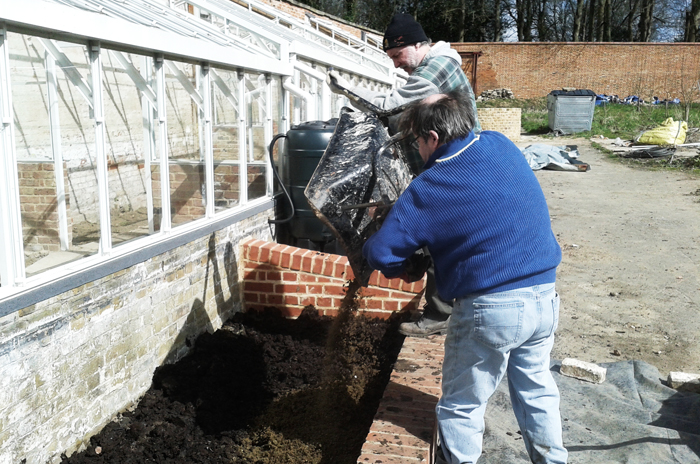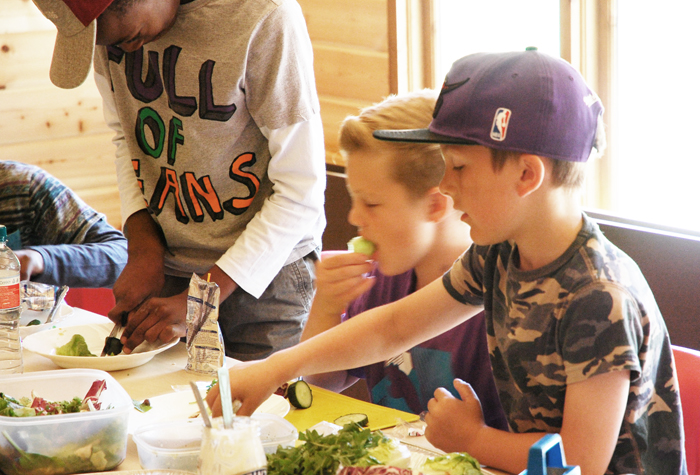
Community Impact
Now that the garden is more or less fully renovated, we are focusing on our aim to promote health and well-being among local residents. We have several activities for specific beneficiary groups:
– Grow>Cook>Eat for school children aged 8-12
– a “Growing Friends” gardening and social club for over 50s
– work placements for the long-term unemployed and youth offenders
– horticultural training for long-term unemployed and young adults with moderate learning difficulties
– volunteering opportunities for everyone
We are continually learning about the positive impact of these activities on the garden community members, but the results of our evaluation last year were very encouraging.
In August 2014 24 children participated in the Grow>Cook>Eat summer programme, learning about healthy food; how to grow it, how to cook it and how eating well benefits your health. As a result of the 5-week programme, almost all children reported knowing and liking more vegetables and, in a simple test, they were all able to explain why vegetables are so healthy. Some of the children became more active at home with helping in the kitchen and/ or started growing vegetables in their own gardens. Beyond the impact on participating children, we measured a significant increase in the number of vegetables used for dinner at home.
Our volunteer members reported back to us in a survey that working in the garden made them feel healthier, stronger, more energetic and with improved endurance. In addition, about 75% of them told us they felt their life had become more worthwhile and half of those surveyed felt their social life had improved.
From March-December 2014 about 120 long-term unemployed benefited from a work placement in the garden. A survey among a selection of participants revealed that a vast majority felt more confident about themselves. They also reported to enjoy more working with others and feeling more motivated to search for a job, contributing to feeling happier in general.
All the beneficiary programmes will continue to be monitored through surveys, interviews and anecdotal evidence to prove that the garden is improving health and wellbeing and therefore people’s lives.
